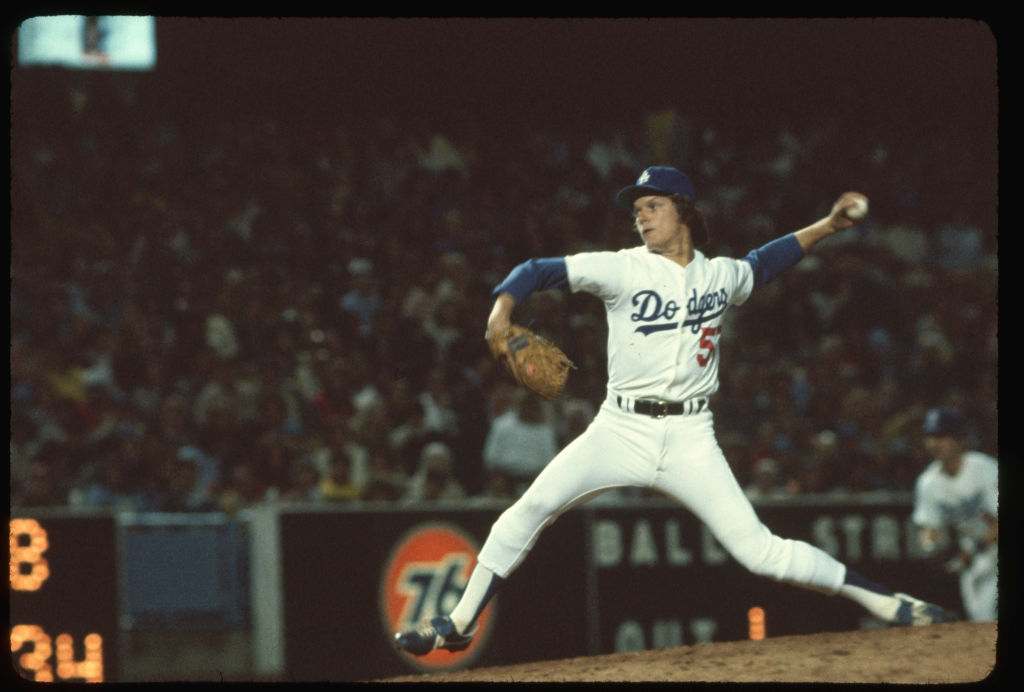MLB
Steve Howe Threw Hard on the Mound and Threw His Life Away off It

Findings released by a coroner made for a sadly unsurprising end to the story of Steve Howe. Once a National League Rookie of the Year with the Los Angeles Dodgers, Howe’s life spiraled out of control. He would eventually become the first major-league player permanently banned for drug use.
Steve Howe’s autopsy confirmed he hadn’t kicked his habit
RELATED: Todd Marinovich Admits ‘Robo-QB’ Upbringing Contributed to His Life of Drugs, Prison
Steve Howe had methamphetamine in his system when he was killed in a single-vehicle crash on a highway in Coachella, California, on April 28, 2006, an autopsy showed.
Howe, 48, died of injuries sustained when his pickup truck veered into the median. Howe, who was not wearing his seat belt, was thrown from the vehicle and crushed, according to the police investigation.
The coroner’s report did not indicate how much methamphetamine was in the retired pitcher’s system. It was not nearly the first time Howe’s name was associated with drugs.
Steve Howe’s rapid fall from ace reliever to drug addict
RELATED: Mike Tyson Once Won a Boxing Match While High on Cocaine
Steve Howe went from NL Rookie of the Year in 1980 to banned for life in 1992 after repeated suspensions for drug usage. An arbitrator reinstated him after the season, and Howe would play four more years with the New York Yankees.
The Los Angeles Dodgers drafted Howe out of the University of Michigan in 1979, and he was in the majors at the start of the following season as a left-hander out of the bullpen. His first win came via five innings of shutout relief three games into the season, and he continued to display a biting fastball to go along with a cocky attitude on the mound.
He made his only All-Star team in 1982, when he went 7-5 with a 2.08 ERA. But his personal problems began to surface after the season when Howe checked himself into a substance-abuse center due to cocaine use.
Howe relapsed in late May in the 1983 season, failing to show up for a game. He the club for help and was placed on the disabled list to re-enter a rehab facility. Howe was ready to return to the Dodgers at the end of June, but commissioner Bowie Kuhn fined the pitcher a record $54,000 and placed him on probation for three years.
That would be the first in a series of second chances that subjected Major League Baseball to ridicule over its lack of a cohesive substance-abuse policy, but it wasn’t even the last relapse of the season. Howe missed a flight to Atlanta during the final road trip of the year, refused a drug test, and was fined another $54,000 by the Dodgers.
After a succession of failed drug tests in the offseason, Howe was suspended for a year, using that time to recover from shoulder surgery.
Six more suspensions would follow
Steve Howe’s repeated problems with cocaine got him released by the Los Angeles Dodgers and Minnesota Twins 11 weeks apart in 1985. That led him to a bid to resuscitate his career with an independent league team the following spring, but there were more positive drug tests and another suspension.
The Texas Rangers signed Howe for the second half of the 1987 season. He no longer had the great movement on his fastball, but Howe’s left arm was still an asset to the pitching staff. He made it through the remainder of the season before missing an offseason workout, prompting the Rangers to release him.
No MLB team would give him another chance until 1991, when New York Yankees general manager Gene Michael extended Howe a non-roster invitation to spring training. Howe made 37 appearance in middle relief and looked like he had regained his old form, compiling a 3-1 record and 1.68 ERA before a season-ending elbow injury in August.
Howe had his first known run-in with law enforcement that winter in Montana, where he would plead guilty to attempted possession of cocaine and was permanently banned by commissioner Fay Vincent. The players union successfully appealed, but the seventh suspension of his career apparently threw a scare into Howe; he would play three more full seasons for George Steinbrenner’s Yankees without incident.
Howe was released early in the 1996 season after struggling on the mound, putting an end to his once-promising career.











